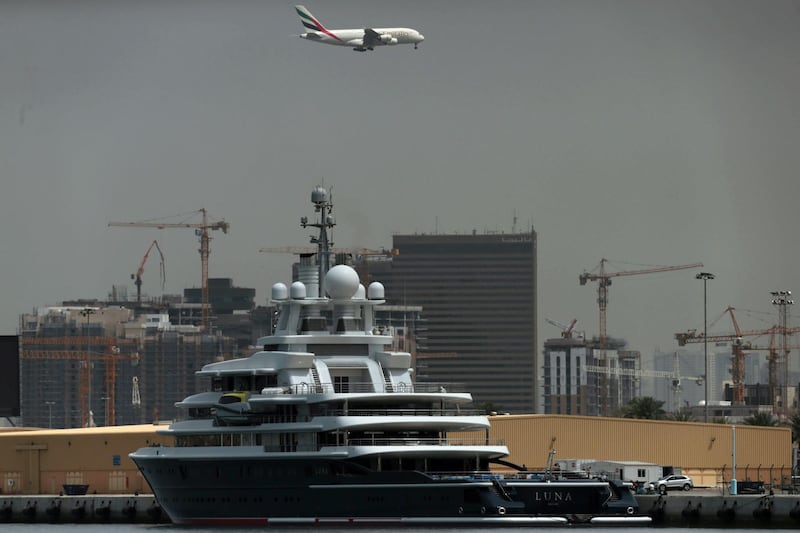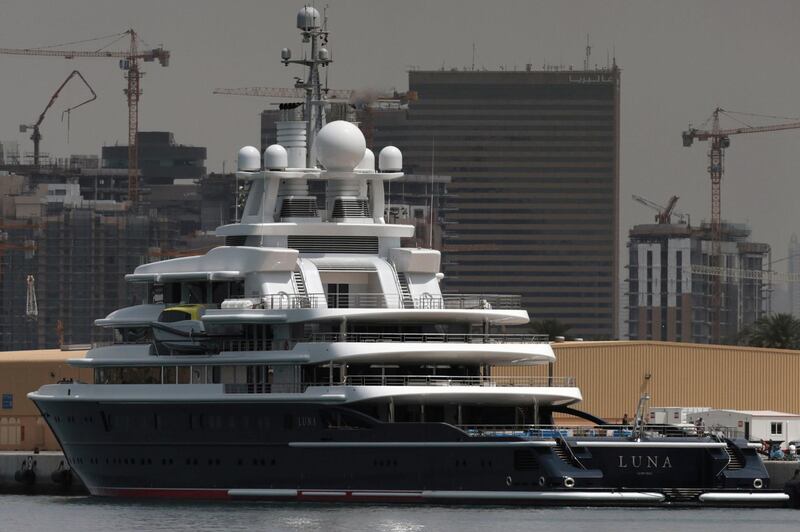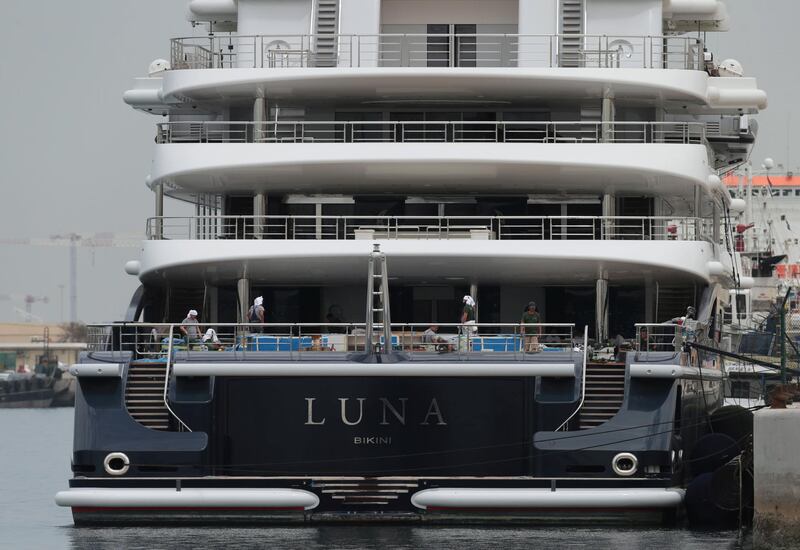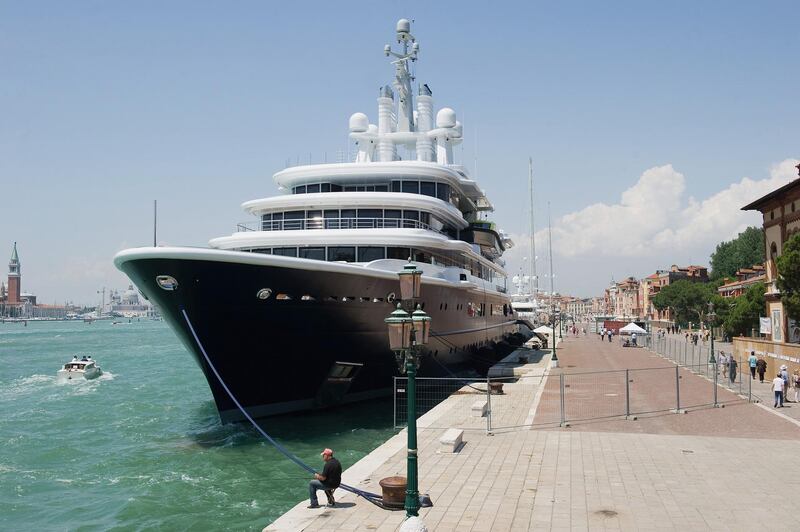The complex matrimonial battle between Russian oil and gas tycoon Farkhad Akhmedov and his former wife Tatiana Akhmedova took a new legal twist, bringing their son into the battle.
Google was ordered by a US judge to turn over the content of Temur Akhmedov's emails to the oligarch’s former wife in her pursuit of a £450 million ($601m) divorce judgment.
The skirmish over the email accounts is part of one of London's largest divorce fights – involving a super yacht in Dubai and litigation funder Burford Capital – which landed before a judge in San Jose, California, in the federal court closest to Google's Mountain View headquarters 22 kilometres away.
Ms Akhmedova alleges that her former husband transferred assets to their son Temur to avoid paying a London court’s judgment that she says remains “almost entirely unsatisfied".
US Judge Virginia M DeMarchi said she was inclined to comply with the London court's ruling allowing Ms Akhmedova to seek her son's emails from Google. The judge said the information released should not go beyond the requirements of the litigation in London.
The information from the emails will be used to learn whether Temur assisted his father in the fraudulent transfer of assets, and if so, to win a judgment against him, Ms Akhmedova said in a filing.
Judge DeMarchi’s ruling follows a search of Temur’s apartment by his mother’s legal team that was authorised by a London judge who has accused the son, a financier, of destroying evidence, according to media reports.
A representative of Temur Akhmedov said the US suit was an attempt “to find ‘evidence’ against him which simply does not exist”.
"As a result of this latest Google hearing, Temur hopes his mother and her backers will enjoy reading the contents of his old high school email account," the representative said.

Previously, the oligarch failed in an attempt to claim for $115 million in damages against his former wife, after a superyacht was impounded in Dubai as part of the divorce battle.
The 115-metre MV Luna has been held in Dubai since February 2018 while lawyers for oil and gas tycoon Mr Akhmedov fought a UK court order that transferred it to his former wife.
The Dubai Court of Cassation rejected the claim that it was unlawful and ruled that no damages should be paid.
The oligarch has also been forced to sell a $5m helicopter and give the cash to his wife as part of the divorce.
In the latest development, Google argued that it is forbidden under US law to disclose contents of a communication without an account user’s “express consent".
Julie E Schwartz, a lawyer for Google, told Judge DeMarchi that Google faces legal liability for improperly disclosing the information. “This has broader implications than just this case here today,” she said.
In her order, Judge DeMarchi wrote that Temur Akhmedov’s “generally unco-operative behaviour” in the British litigation proceeding did not have any bearing on her decision, which instead turns on whether the accounts are his and whether he agreed to Google turning over the information they contain.
“Google points to no evidence suggesting that Mr Akhmedov is not the owner of the accounts, and he has clearly and expressly consented to production of their contents,” Judge DeMarchi wrote.
Albert Gidari of Stanford University’s Centre for Internet and Society said the judge probably did not want to hold up a trial set for November 30 in London.
“No one should read this decision as open season on compelled disclosure of user content in discovery proceedings,” Mr Gidari said. “To the contrary, the case stands for the unremarkable proposition that if a party can prove ownership of an account, and show discovery from the user can’t be had through other means, the party can obtain provider assistance through court proceedings.”
Google did not respond to a request for comment about the ruling.












